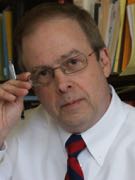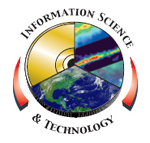
Please Note: The content on this page is not maintained after the colloquium event is completed. As such, some links may no longer be functional.
Edward Griffor
The NIST Cyber-Physical Systems (CPS) Framework and its Applications
Wednesday, October 12, 2016
Building 3 Aud 11:00 AM
(Cookies available at 10:30 AM)
Cyber-Physical Systems (CPS) and the Internet of Things (IoT) present new technical challenges to addressing key concerns, like safety and security, in design, development and assurance. The NIST Cyber-Physical Systems Framework provides a holistic, integrated concern-driven approach to CPS and IoT. The Framework, through its 'concern/property' tree, define the CPS Model. The formal methods-based Assurance Facet of the Framework provides a mathematically rigorous assurance case discipline. The Framework has been modelled in UML/XML to inform and facilitate the application of the CPS Framework.
An Open Source Project, based on formalization of the Framework, will be released in a public workshop, of the same name, at NIST in early 2017. The Open Source Project will allow providers of software tools, for system development management, to collaborate on extensions and tailorings of the NIST Framework. The CPS Framework provides a functional decomposition of a CPS, from business and use case to allocation of feature/function to the 'logical/cyber' to hardware and software and finally to interactions of either logical/cyber or physical type. The resulting Interaction Calculus formalizes these interactions at the function level, reflecting interactions between concerns that define the design and tradeoff space. The NIST federated CPS Testbed technology or Universal CPS Environment for Federation (UCEF) is a virtual machine based technology for federating existing modeling and emulation environments into a CPS Testbed.
Dr. Edward Griffor is the Associate Director for Cyber Physical Systems at the National Institute of Standards and Technology (NIST) in the US Department of Commerce. Prior to joining NIST in July of 2016, he was a Walter P. Chrysler Technical Fellow, one of the highest technical positions in the automotive industry and one that exists in multiple industry sectors, including transportation, aerospace, science, defense, energy and medical. He served as Chairman of the Chrysler Technology Council until 2015 and continues to serve as Chairman of The MIT Alliance, a professional association of scientists, engineers, and business experts trained at the Massachusetts Institute of Technology.
Dr. Griffor completed doctoral studies at MIT in Mathematics at MIT and was awarded Habilitation in Mathematics and Electrical Engineering by the University of Oslo. He was named National Science Foundation/NATO Postdoctoral Fellow in Science and Engineering in 1980. Dr. Griffor was on the faculty of Uppsala University in Uppsala, Sweden from 1980 to 1997 and returned to the US to lead advanced research in Electrical Engineering in the automotive industry at DaimlerChrysler and later at Fiat-Chrysler.
Dr. Griffor has served on the faculties of the University of Oslo in Norway, Uppsala University in Sweden, the Catholic University of Santiago in Chile as well as those of Harvard, MIT and Tufts University in the U.S. He is regarded as one of the world experts in the use of mathematical methods for the design and assurance of technologies used in developing advanced, adaptive cyber physical systems, including those used to ensure the safety and security of autonomous systems. In addition to his work at Chrysler, Dr. Griffor has led research in biosystem modeling and simulation. He is Adjunct Professor at Wayne State University School of Medicine in Detroit, MI at the Center for Molecular Medicine and Genetics.
Dr. Griffor’s work in the automotive industry provided advanced algorithms for Voice Recognition and Autonomous and Connected Vehicles. Dr. Griffor’s publications include the Handbook of System Safety and Security and the Handbook of Computability with Elsevier, the Mathematical Theory of Domains with Cambridge University Press, and Logic’s Lost Genius: The Life of Gerhard Gentzen with the American Mathematical Society. He has published extensively in professional journals and has given invited presentations for the American Mathematical Society, Association for Symbolic Logic, North American Software Certification Consortium, Society of Automotive Engineers, the Federal Reserve Bank and US government agencies, including NIST, DARPA, DOE, DOT and NASA.
IS&T Colloquium Committee Host: Jacqueline Le Moigne
Sign language interpreter upon request: 301-286-7040
